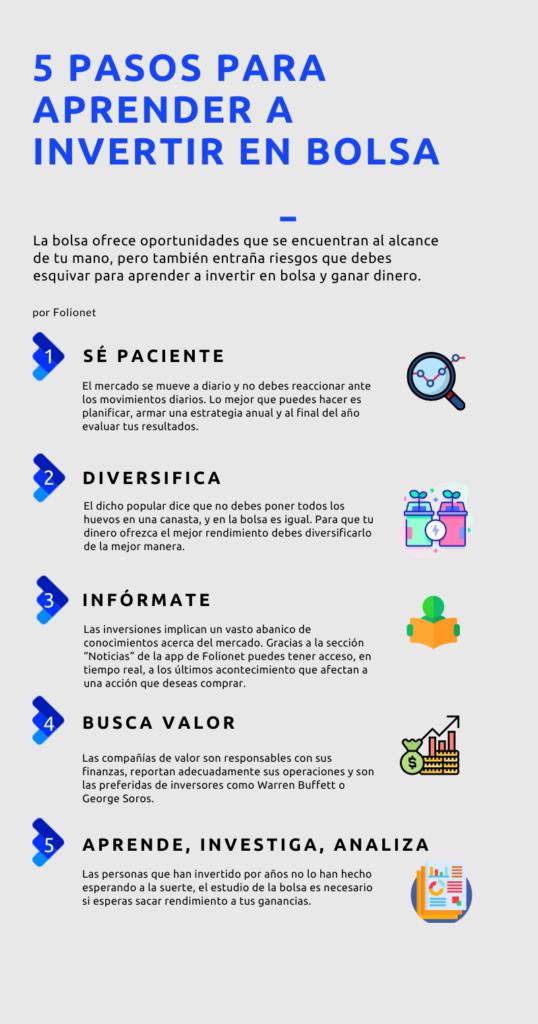Invest in uncertainty
A few days after closing exercise 2021 many demand to investment managers, economists and other forecasters the perspectives of the following year.It seems that the evidence of error of the predictions in the social sciences (to which the world of the stock market belongs) does not demoralize the market participants, who continue to depend on the predictions about an unpredictable future to calm their desire for knowledge.
The problem is that the future is unpredictable by nature.But we have that strange need to have to predict everything.We are not prepared to assume our inability to know what will happen.This reality becomes more evident in the stock market, where we are forced to make decisions based on expectations.Managers and analysts try to predict what are the markets undervalued by the market to take advantage of investment opportunities.To do this, they have an army of collaborators (financial analysts, economists ...) that try to facilitate things, contributing their vision of the unpredictable future.In this process several mistakes are made at the same time, the most common being the bias of experience and confirmation bias.
Divination professionals (collaborators) contribute years of experience and extraordinary professional trajectories to try to convince their audience and justify their predictions.We forget not only the complexity of the world around us (increasingly interconnected and, therefore, more complex), but, above all, the complexity of human nature.We are deeply emotional beings.And our emotions are impossible to predict.In times of tension, in extreme situations or unknown events, our emotions are imposed on our reason and we act irrationally.This irrational behavior cancels the predictive capacity of any economic model (based on the rationality of Homo Economicus).
The narrative fallacy or confirmation bias is almost more dangerous for the investment manager or the investor itself.The narrative fallacy consists in creating (or finding) a story that helps us justify our theory about the future.In other words, we will always look for reasons to confirm our expectations.And those reasons are offered by our collaborators.

With the help of professionals, we build a perfect story about how the future will be.But, as Nassim Taleb states, life is nothing more than an accumulation of small events of great impact (black swan).Events that are, by definition, unlikely or impossible to predict.That is, our future will be defined by a small number of events (impossible to predict) whose impact will be enormous for our lives.One of them occurred in 2020 ...
In 2020 a pandemic ravaged the world.Even when the virus advanced in a hurry in China, forcing the world factory to close completely, economists continued to consider that the Covid-19 epidemic was going to control and its impact was going to be limited.The markets continued up, paying attention to the optimistic forecasts of their collaborators.In February 2020 the virus enters Europe.Economists continued to see a limited impact.A few weeks later one of the largest falls of the bag and the fastest of all occurs.Economists then began to reduce growth forecasts ...
Confirmation bias was not confirmed (once again).As if that were not enough, the narrative that preva.Fears of deflation were replaced by fears of inflation in early 2021.No one estimated a very high inflation at the beginning of the year, but inflation exceeded 5% during the summer period in the United States, reaching 6.8% in the month of November, the highest data since the 1980s.But the surprising thing has not been so much the vertiginous rise in prices, but the stability of bond performance (which usually have a high correlation with inflation).No one predicted the strong rise in prices.Of course, no one could predict that, given the increase in inflation, the bonds were going to keep stable.The error is not that predictions continue to be made, but that market agents go to them to establish their road map.
Combining Your Office and Mobile Telephony Services Offers Cost Savings, It Also Enables You To Record and Report O ... https: // t.CO/BNOZ4OOCJ0
— 360Group Thu Jul 22 11:56:22 +0000 2021
The question is: why do we continue trying to predict the unpredictable?
nobody knows what is going to happen.And looking for external opinion is to influence error (narrative fallacy).But we have to make investment decisions.We have to decide which companies are undervalued by the market.Some will consider that, depending on the economic environment (the famous cycle theory), you can anticipate what businesses will offer good yields.But investment in this type of business, linked to the cycle, remains a complicated task, since it forces us to guess the course of the economy (impossible task).There will be times when the cycle accompanies, as has been the case of the year 2021, and these cyclic profile busines.But they are nothing more than that, cyclic businesses.
The best investment strategy will be one that manages to maximize the level of dependence on exogenous factors and the economic cycle.Investment success usually has an inverse relationship with the complexity of the investment process.Therefore, investing in the select group of excellent bus.
These businesses usually offer a different, necessary or better product or service than that of competition.In general, these businesses have the strength of a recognized brand.Thanks to their negotiating power, they are able to increase prices without the demand being suffered, so, in times of inflation, they have a huge ease to transfer inflation via prices.This ability to set high prices materializes in very high margins, with the consequent positive impact on business profitability.And all this (recurring growth, high profitability and strong competitive advantages) translates into a great capacity to generate box (money), which allows thempurchases that destroy the future value of the business.
The combination of attractive growth and high profitability, together with strong competitive advantages and a comfortable financial position, allows certain businesses to create recurrent value.And the most fantastic of investing in these businesses is that it exempts us from the stupid task of having to predict the course of the economy.
Álvaro Jiménez is a variable income manager in Gesconsult


